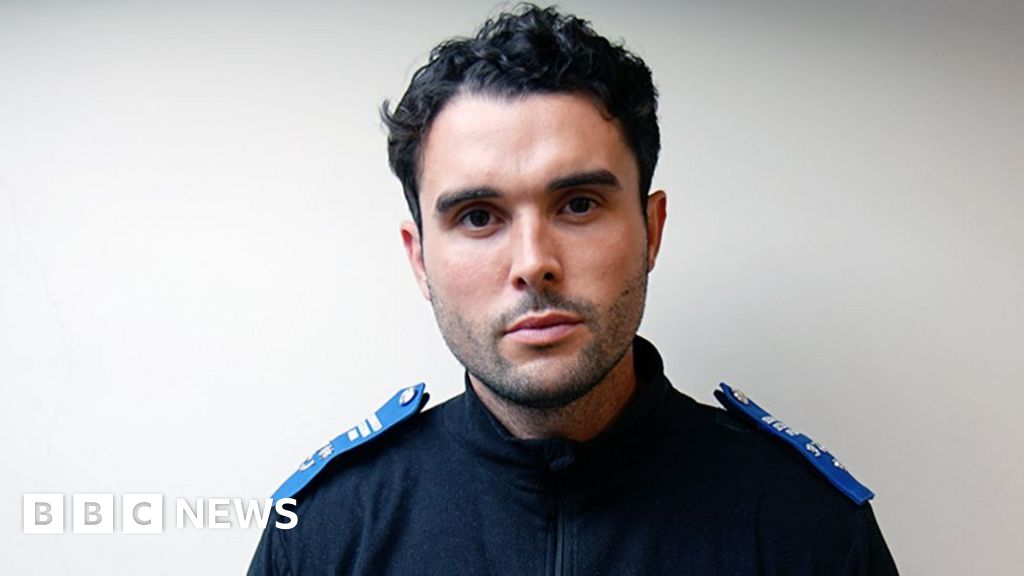Why BBC sent undercover reporter into a busy London police station
17 hours ago Share Save Emma Vardy BBC Panorama reporter Share Save
BBC Panorama's Rory Bibb spent seven months working undercover as a designated detention officer at Charing Cross police station
Adjusting his uniform, Rory Bibb glanced in the mirror before setting off to start his new job. "I feel ready," he told his video diary. This was no ordinary first day. For the next seven months, Rory was employed as a designated detention officer at London's Charing Cross police station. He was also secretly working for Panorama, capturing shocking video evidence of misogyny, racism and officers revelling in the use of force. The BBC had placed an undercover reporter within the UK's largest police force. For responsible investigative journalists, the decision to undertake covert filming like this is never an easy one. Going undercover involves deception and intrusion as tools of public interest journalism, and to justify this there needs to be sufficient evidence of wrongdoing. And in Charing Cross police station, one of the capital's busiest, there was plenty to suggest that all was not right.
Getting inside
For any reporter, going undercover is an intense experience. "Walking in on the first day, and going through those doors of a police station, it's literally the last place on earth you'd want to be wearing secret cameras," he told me. He was under near-constant surveillance. Plus, he said, at all times, "you're around the people who do the investigating." And so began a double life. As well as gathering evidence about the culture among officers, Rory had to undertake all the duties o
Continue Reading on BBC News
This preview shows approximately 15% of the article. Read the full story on the publisher's website to support quality journalism.
